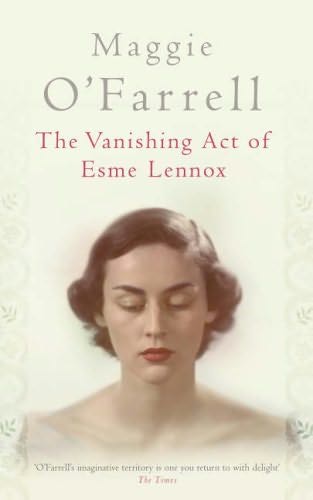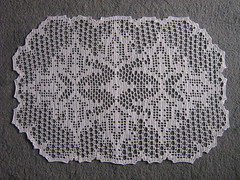Reading Log, January 2009
As the month draws to a close, I realize that I have been confined to the house for nearly three solid weeks. I've either been sick, as has my entire family, plus there was that little episode with the hospital. All things have conspired together to give me many "leisure" hours for reading, while at the same time leaving me mentally unfit for anything more intellectually challenging than L.M. Montgomery.
House of Mirth by Edith Wharton--I listened to the audio version at Librivox.org, except for the last five chapters, which I read. I've already written about this book, but this was my third Wharton novel and it prompted me to accquire her biography, which I plan to read sometime this year.
Patricia Brent, Spinster by Herbert Jenkins--Another audio book! This was written in 1918, but you'd never know it. Patricia, a "spinster" of 24 (this was 1918!) works in London and lives in a boarding house. When she overhears a few other boarders pitying her because she doesn't have anyone to "take her out," she invents a fiance, and announces her plans to go out with him for dinner. Berating herself all the while, she dresses up and calculates how much her "date" is going to cost her. Then she arrives at the restaurant and discovers that a few of her fellow-boarders just "happen" to be dining there as well.
To avoid having her deception revealed, she approaches a man sitting alone at a table, and begs him to "play along," which he does, very gamely. But one thing leads to another, and before long, Patricia's engagement has been announced in the paper, her employer's family are ingratiating themselves with her, and her fellow-boarders are making a greater nuisance of themselves than ever.
This was very funny, and felt like a much more modern novel than its age would indicate. It really would make a very funny romantic comedy film.
I Am The Clay by Chaim Potok--Not my favorite Potok so far.
Santa Claus’s Partner by Thomas Nelson Page--Audio book,at Librivox, of course. I meant to listen to this during the holidays, and didn't get around to it, so I picked it when I finished the Patricia Brent book because it was short. It was a fairly predictable Christmas Carol knock-off (minus the ghosts), but it was okay.
When in Rome by Ngaio Marsh--This is a mystery from the golden era of mystery writers. I've only started reading Ngaio Marsh in the last year or two. I think this is the first one I've read that *didn't* have a theater setting. Instead, it takes place in Rome (as the title implies), with a lot of architecture and historical "atmosphere." To be honest, it was only so-so. A lot of what I read and listened to this month was fairly mediocre, and I am ready for something great.
The Vanishing Act of Esme Lennox by Maggie O'Farrell--Probably the newest title I read this month. There were quite a few interesting themes in this story, but I found both Esme's circumstances and the ending of the book very disturbing.
The Blue Bedroom by Rosamunde Pilcher --This was a collection of Pilcher's short stories. I've read some of her longer books before, and I adore her character-driven novels that show love and grace in action. These shorter stories, mostly about families, were not too bad, although I like her longer fiction better.
The Witness for the Prosecution (and other stories) by Agatha Christie--another short story collection, and some of Christie's most chilling and gruesome stories, I might add.
Maus by Art Spiegelman--a graphic novel, about the author's father's experiences in Nazi-occupied Poland. His family was Jewish, and he and his wife survived Auschwitz, although most of the rest of their family, including a pre-school aged son, did not. This was the first graphic novel I've read, and I don't think I'll be a regular reader of this kind of book, but I will try to find and read the sequel to this.
The Grey Woman by Elizabeth Cleghorn Gaskell--This was another audio book. I've only been reading Gaskell for a couple of years--North and South, Wives and Daughters, and Cranford so far. This short novella (which I listened to at Librivox) was a bit of a shock. I even thought for a while they might have listed the author incorrectly and it was really Ann Radcliffe, author of The Mysteries of Udolpho. This is a "Bluebeard" story in which in a young girl marries a mysterious foreigner, and is taken to live in his remote castle, where she discovers to her horror that he has secrets she never dreamed of.
A War of Gifts by Orson Scott Card--I am an unabashed fan of Card's Enderverse books, but I'm sorry to say, this one was a disappointment. It's a Christmas story of sorts, that takes place at the Battle School during Ender's training there. It would have been better if Card had told his story and left Ender out of it, because I couldn't reconcile Ender as he appeared here with the Ender we know from Ender's Game. My recommendation: read Ender's Game and all its marvelous sequels...except this one.
The Lair of the White Worm by Bram Stoker--I listened to this as an audio book, and only finished it for the same reason you watch a bad movie to the end--just because you have to see if the whole thing is really as bad as it seems, and because some things are just so bad they are almost funny. If I make a "worst books of 2009" list at the end of the year, this book will be on it.
Beloved by Toni Morrison--I just finished this and am still mulling it over. I hope to do a better review this week, and I'll link it here if I do.
That makes a total of thirteen books in January, and nary a one of them nonfiction. I am ashamed of myself, but plead mental fog brought on by a child's accident, my own fever and relentless cough, quite a few sleepless nights, and just plain weariness of soul. I hope to do better in Feburary.
As part of my monthly reading log, I plan to include what progress I'm making in my Worthwhile Reading Challenge. I've already confessed the titles I completed this month, but before the month fell apart, I did get about 1/4 of the way through Bronowski's The Ascent of Man, and in spite of a change of heart on my part about whether or not this is worthwhile reading, I hope to finish it in February.
I also started reading Szatan z siodmej klasy and have decided that, intended for young people or not, this is a hard book for me. I'm up to page 9. Don't laugh. Here's my rough translation of one sentence: "A flock of mustangs on the prairie never neighed with joy at the site of water like the seventh grade neighed aloud with humor." Of course, they're not neighing--just laughing. But I don't know the verb "neigh" anyway. I don't like reading with a dictionary at my elbow, so I just soldier on and hope for the best. If I'm going to finish this book, it is going to have to be by reading just one or two pages per day on a consistent basis.
So, now I'm ready for February.















